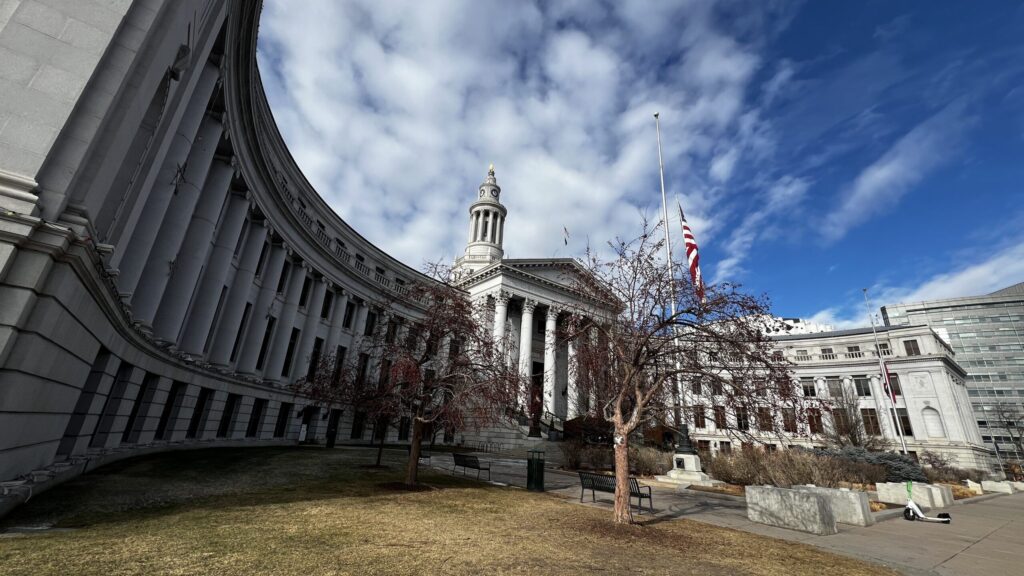Colorado Senate advances ban on toxic ‘coal rolling’ cultural protest
Colorado lawmakers are inching toward outlawing “coal rolling,” the practice of adjusting the workings of a diesel truck in order to let loose at will clouds of unfiltered exhaust as a form of cultural protest in an age of electric cars and climate change.
The state Senate voted on Wednesday to pass a revised version of a bill that would make rolling coal a traffic infraction and subject drivers to a $100 fine.
Senate Bill 278, sponsored by Sen. Don Coram, a Republican from Durango, passed with bipartisan support. It drew aye votes from onetime skeptical rural conservative lawmakers, including Ray Scott from Grand Junction and Jerry Sonnenberg, a farmer from Sterling.
Democrats all voted in favor. Twelve Republican senators opposed.
The vote in the Senate was crucial. An earlier version of the bill already passed in the Democratic-controlled House. This one is very likely to sail through the lower chamber and onto the governor’s desk in these last three weeks of the year’s legislative session.
Rolling coal has made news for years. Videos posted online mostly by coal rollers and their fans, document the practice as a larkish middle finger to the growing legions of Prius-Leaf-Tesla-driving, outdoor-latte-sipping Americans.
Coal rolling statistics are hard to come by. The New York Times last year reported that, in Colorado, “complaints over diesel smoke” had risen 5 percent between 2014 and 2106.
Witnesses who testified at hearings for the earlier version of Coram’s bill called the practice intentionally obnoxious, tormenting and dangerous. The state’s army of bicycle riders in particular seems to be the preferred target of coal rollers. In a flash, a crisp afternoon ride can be transformed into a chaos of engine revving, acrid fumes and blackness. Cyclists say Colorado’s winding often narrow roadways are no kind of terrain to find yourself suddenly sailing into a cloud of fumes, blind and enraged.
Dan Grunig, executive director at Bicycle Colorado, lauded the Senate vote on a call with The Colorado Statesman.
“The fine isn’t huge, but the important thing is that the bill would give law enforcement a tool to address the danger,” he said, adding that traffic citations would usefully create data from which to map the phenomenon in the state.
“This is not just your neighbors, it concerns tourism, too,” Grunig said, citing Colorado department of health and environment statistics that show out-of-state cycling tourists spend $317 million in Colorado every year. “Rolling coal sends the message that our roads are unwelcoming.”
New Jersey banned coal rolling in 2015. A citation for the offense in the Garden State carries a $5,000 fine.
Grunig was coal rolled a few years ago, “somewhere on the roads of Jefferson County — I log a lot of miles,” he said. “Unfortunately it’s too common of a practice. There’s not much you can do.”
Coram’s earlier version of the bill failed in committee. Members thought the bill might also net drivers of agricultural and hauling vehicles. Senate Bill 278 specifies that the law would cover only personal passenger vehicles.
Altering a vehicle’s emissions system to release pollutants is already a federal crime, but the federal law is rarely enforced. Officers have to go “smoke school” to train in identifying and citing coal-rolling lawbreakers.
“There’s a reason tampering with a vehicle like that is illegal under the Clean Air Act,” said Jessica Goad with Conservation Colorado. “This is about health and public safety. Diesel exhaust causes cancer.”












